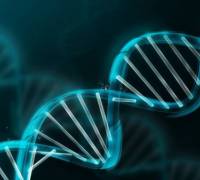| Main » Articles » Health |
What Are Headaches? What Causes Headaches?
A headache, medically known as cephalalgia, is a continuous pain in the head. The pain can be anywhere in the head or neck. As the brain has no pain receptors, headaches are not felt in the brain. The pain is caused by disturbances of the pain-sensitive structures around the brain. According to MediLexicon's medical dictionary, Headache means "Pain in various parts of the head, not confined to the area of distribution of any nerve". The American Academy of Neurology says there are four types of headache:
Tension headachesAccording to the U.S. National Library of Medicine, tension headaches are the most common type of headache, and generally affect adults and adolescents - they can affect younger children, but this is not common.During a tension headache, there may be muscle tightness in specific parts of the head, scalp and/or neck - these areas are uncomfortable and often painful. Some studies, however, have indicated that muscle tightness is not as common among sufferers as was once believed. People who suffer from tension headaches say they feel like a tight band or vice on the head. The pain is usually dull, and covers most of the head. It was thought that tension headaches were mainly caused by tension that builds up in the scalp and neck muscles as a result of stress, depression, anxiety, or a head injury. However, the exact cause or causes are unknown. Recent research indicates that there does not appear to be any significant increase in muscle tension in people known to suffer from tension headaches. Experts today believe that a change in certain brain chemicals may be the main factors that contribute to tension headaches. These chemicals are the ones that help nerves communicate, such as serotonin, endorphins, and several others. We are not sure why the levels of these chemicals change. We suspect that the fluctuations activate pain pathways to the brain and probably undermine our ability to suppress pain. What causes tension headaches?These factors are thought to contribute to tension headaches:
A team at the University of Cincinnati College of Medicine linked teenage headaches with smoking, lack of exercise and/or being overweight. In another study at the same university, investigators found that lightning can trigger headaches in some people. What are the treatment options for tension headaches?The ideal treatment for tension headaches depends on many factors, including the patient's overall physical and mental health, and lifestyle.Some people manage to deal with their pain without the help of a health care professional. Over-the-counter medications are usually effective for most cases of tension headache. However, be careful, overuse can lead to further headaches. The most common drugs for treating the pain symptoms include:
Hot or cold showers - some people find that taking a shower helps. While one person may benefit from a hot shower, others may find a cold one gives better results. Lifestyle - some simple changes in lifestyle may reduce, and sometimes completely eliminate the recurrence of headaches. Getting enough sleep, doing plenty of exercise, stretching the neck and back muscles regularly may be all you need. Diet - are you eating properly? A good diet with plenty of fruit, vegetables, minerals and fiber will help you stay in good health and might help reduce the intensity and frequency of your headaches. Work related headaches - if you suspect your job may be at the root of the problem, try to find ways to make it less stressful - talk to your boss, or human resources manager. Depression - if the tension headache is chronic (longterm), there is a chance you coud be suffering from depression and prescribe an antidepressant. Yoga or Tai Chi - ff you are lucky enough to have a good trainer, yoga or Tai Chi have been known to treat many types of headache effectively. It is crucial that the therapy is done with a well trained expert. Researchers at UCLA in California found that Tai Chi provides significant benefits for adults with tension headaches. Using sleep to treat chronic tension headaches can lead to insomnia - scientists at Rush University Medical Center found that women who use sleep or napping as a way of coping with chronic pain caused by tension headaches risk developing chronic insomnia. What is the outlook? Will I get better?In the majority of cases, tension headaches respond well to treatment. They are unpleasant but not usually harmful if they do not occur as a symptom of another condition.For treatment to be effective it is important that the patient adheres to the doctor's instructions. Non-compliance or non-adherence is one of the most common reasons for treatment failures - not only for tension headaches. When tension headaches occur as a symptom of another condition, they will generally get better when that underlying condition is treated successfully. If painkillers are used too often and for too long, there is a risk the patient may develop rebound headaches. List of types of headache:Each of the links below goes to a medical dictionary definition in www.medilexicon.com.
Video - Symptoms of Tension vs. Migraine headacheThe video below contains a list of the symptoms that help to differentiate tension from migraine headache. Written by Christian Nordqvist | |
| Views: 763 | Rating: 0.0/0 |
| Total comments: 0 | |






